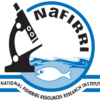Fish Sampling in Ponds
Sampling should be done, monthly by seining a small portion of the pond to monitor for growth.
| Languages: | English |
| Countries: |
|
| Price: |
|
About this training
In this training we tackle Sampling of fish in Ponds
What you will learn
- Before you start
- Sampling
- How Best to Sample
Authors
Institutes
Reviews 3 / 5
-
MMargaret Aanyusenior research officernational agricultural research organisation, aquaculture research and development center-kajjansiAdd nutrition-related diseases and how to prevent them. Give guidance on environmentally friendly strategies/measures for predator control. Aquaculture should not be destructive
-
 Wambuzi JuliusAssistant LibrarianNaFIRRI-ARDCDouble check with the content
Wambuzi JuliusAssistant LibrarianNaFIRRI-ARDCDouble check with the content -
 John WalakiraSenior Research ScientistNational Fisheries Resources Research InstituteInclude types of diseases, prevention, collecting sick samples, reporting disease outbreaks, who are the competent authorities
John WalakiraSenior Research ScientistNational Fisheries Resources Research InstituteInclude types of diseases, prevention, collecting sick samples, reporting disease outbreaks, who are the competent authorities -
AAliceInformation Communication OfficerNaFIRRIInclude common fish diseases on the course outline
-
 Denis OpioFish NutritionistNaFIRRI/ARDC KajjansiFeeding is a double-edged sword as far as stress management is concerned. Good feeding improves production, excessive feed input fouls the water leading to stress
Denis OpioFish NutritionistNaFIRRI/ARDC KajjansiFeeding is a double-edged sword as far as stress management is concerned. Good feeding improves production, excessive feed input fouls the water leading to stress



